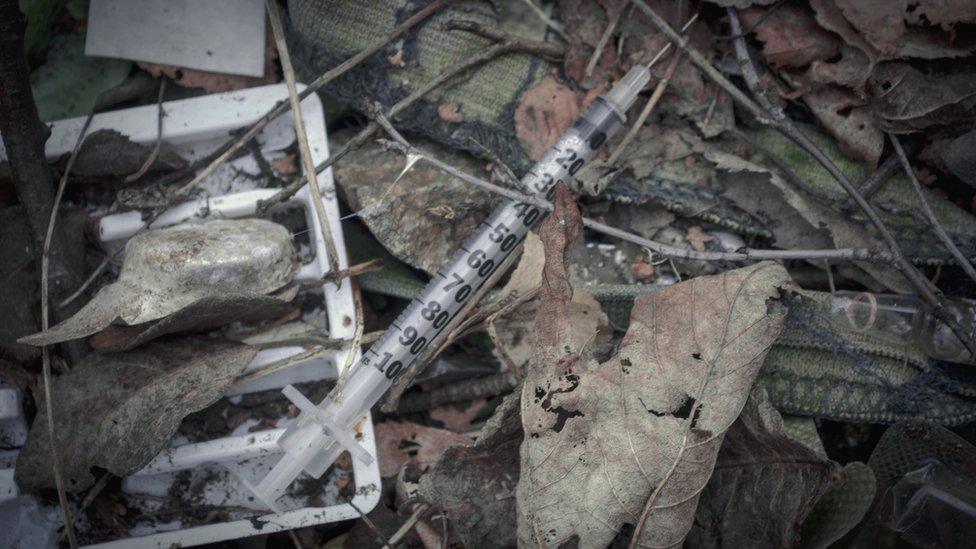Butetown: A community taking a stand against drugs
- Published
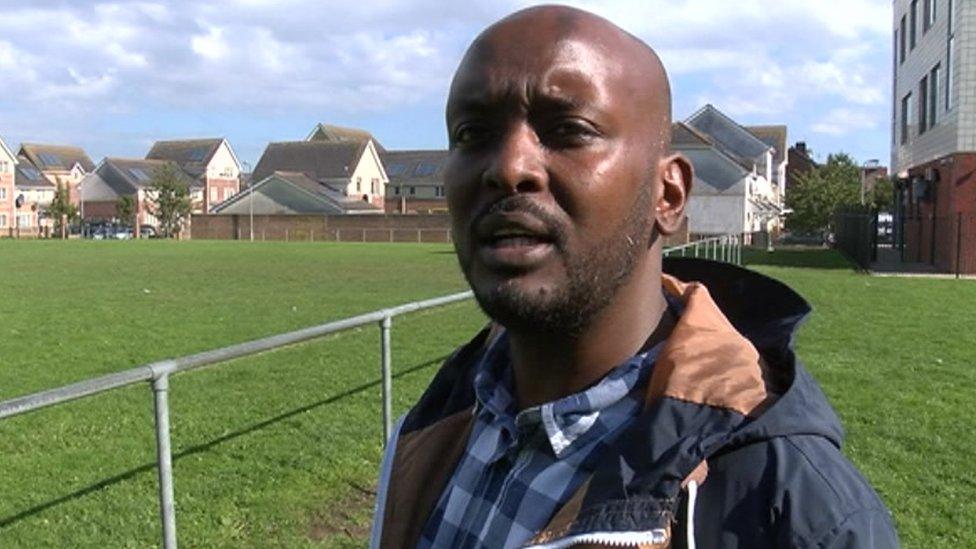
Saeed Noor Ebrahim said nearby hostels could be a part of the problem
Just a short walk from the home of Welsh democracy and the bars of Cardiff Bay, used needles lie discarded in the streets close to where children play.
Residents speak of heroin being openly dealt and injected in broad daylight.
Now there are growing fears teenagers are being targeted by dealers to handle drugs.
The Butetown community in Cardiff is uniting to fight back against a growing drug problem they fear is putting everyone in danger.
Residents have formed a neighbourhood watch scheme, with groups patrolling the streets three nights a week.
A former head teacher said it was a miracle no youngsters had been hurt.
"We just need one child to be smitten with a needle and I know there will be all hell to play in this area," said 84-year-old Betty Campbell, a former councillor.
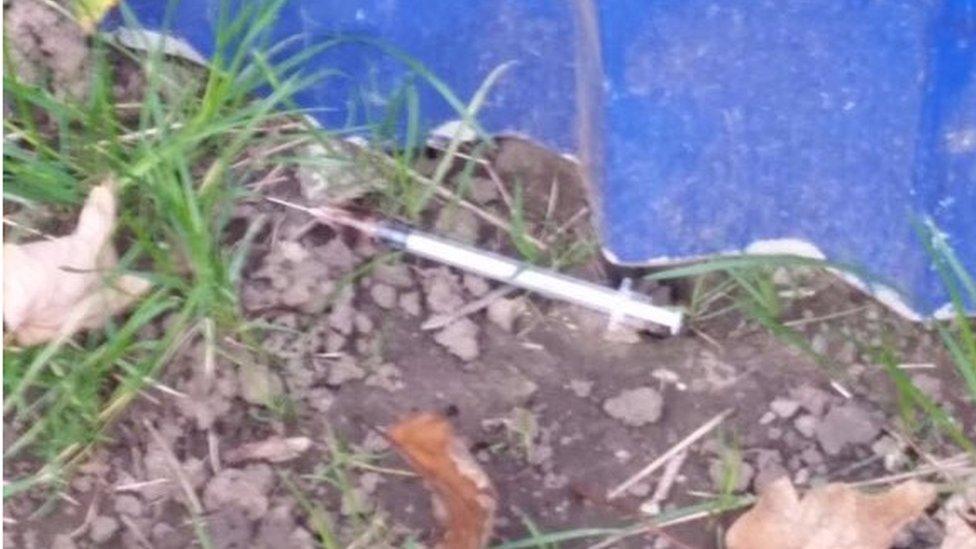
On Thursday, the drug issues in the area will be raised at Cardiff council cabinet after Plaid Cymru tabled a motion to open safe injection rooms across the city, external.
Plaid councillor and AM for South Wales Central, Neil McEvoy, who put forward the motion, said injection rooms needed to be spread across the city and "not ghettoised".
The drug problem in Butetown is not new, but community leaders and residents say it has changed into something more sinister in the past few years.
At the football field, Canal Park, home to AFC Butetown and Tiger Bay FC, residents say discarded paraphernalia has to be cleared before a game can start and there are stories of children finding and playing with discarded needles.
Campaigner Naz Adams said: "One parent told me her children found two needles near the school and were playing with them - they are five and seven.
"I was sickened, that is unforgivable."
Cardiff Council said it carried out regular clean ups of the area and removed needles when they were found, but admitted there was "no simple solution".
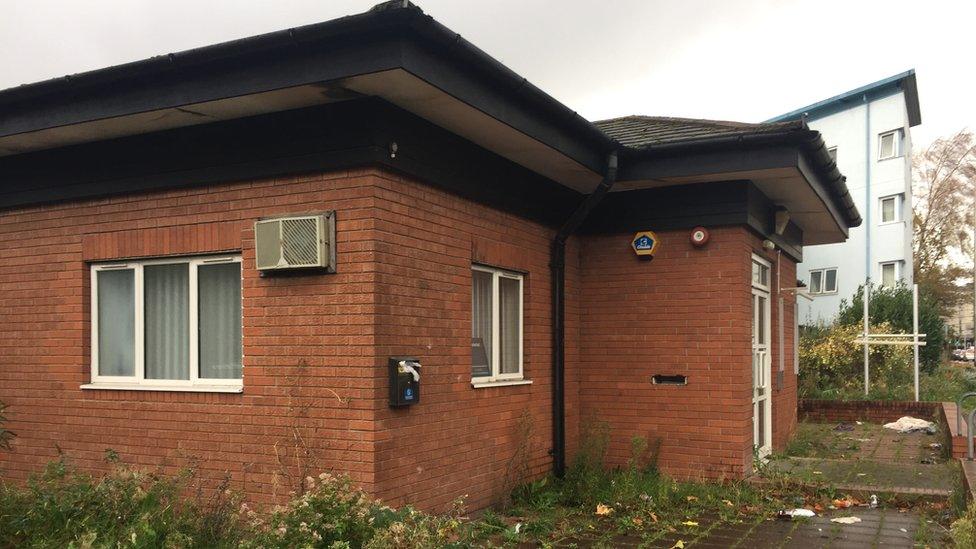
Cardiff Council say the decision not to lease the building to charity for a rehabilitation centre "was "mutual"
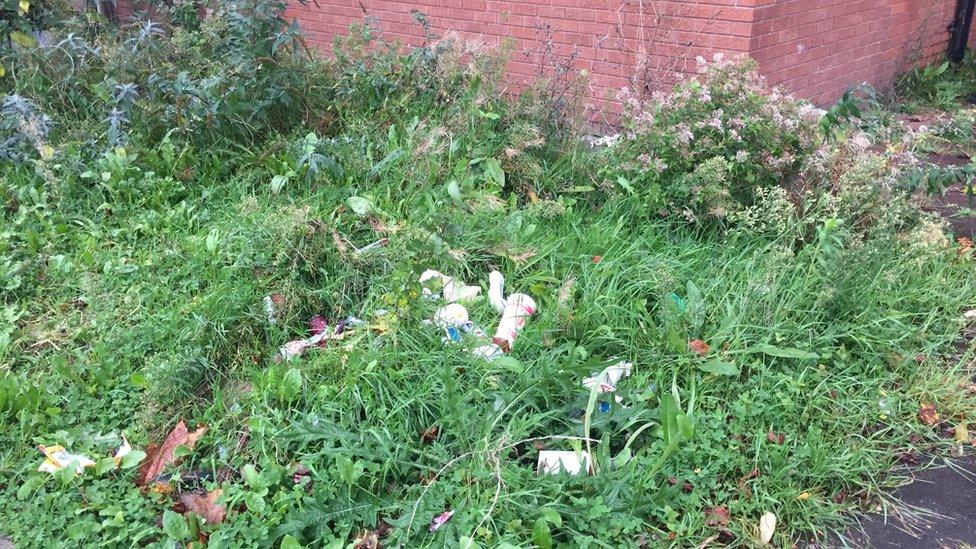
The issue was forced into the spotlight earlier this month when a charity planned to open a drug rehabilitation centre close to St Mary the Virgin CIW Primary School.
Change, Grow, Live was due to move into the former PDSA centre on Bute Street, taking over the lease from Cardiff Council.
But in the face of huge opposition - with two packed public meetings and a 400-plus strong petition - the plans were dropped.
Cardiff and Vale University Health Board (CVUHB), the charity and the Substance Misuse Area Planning Board (APB) said the community's message that it was the wrong location "could not be ignored".
But they stress there is a clear need for substance misuse support services and "alternative premises" are being looked at.
Drug battle in shadow of assembly
The APB are considering various options including "some level of safe drug use in a safe and supervised environment" - also known as safe injection rooms.
But this is at an "exploratory stage" and any proposals would be assessed for both risks and benefits.
Within walking distance of the community there are already two needle exchange centres and Mrs Campbell feels the area cannot "bear the burden" of any more.
"I'm fed up of us being used as a dumping ground," she said.
At one of the recent public meetings a girl - said to be about 13 - spoke out about how she was afraid of leaving the house due to drug dealing.
One resident, who did not wish to be named, showed BBC Wales an area outside her flat where drug users were jumping over the wall to "jack up" in the middle of the night.
"The drug dealing round here, it is everywhere, it is openly done in the bay," she said, adding police never arrived in time to catch the dealers.
"It is within a couple of hundred yards of the Welsh Parliament [Assembly], it is the divide, how come this is allowed to happen?"
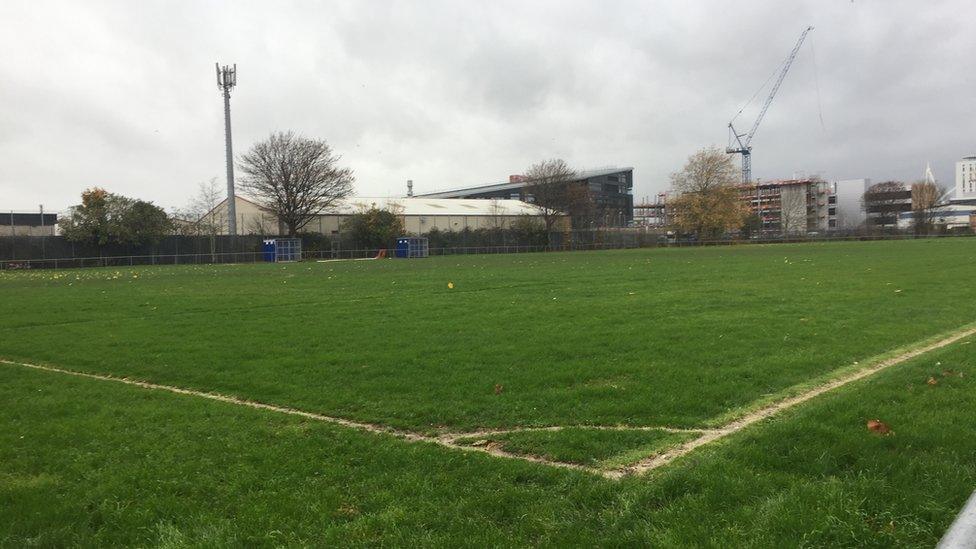
Residents say Canal Park has to be cleared of drugs paraphernalia before children can play on the pitch
Community activist Saeed Noor Ebrahim said the real issue was the number of dealers coming in from the outside area.
Mr Ebrahim said 15-25 residents of all ages were taking part in the neighbourhood watch patrols every week, with residents ringing police non-emergency number 101 when they spot problems.
"We are now moving forward as a community, we have challenged it," he said.
"The most positive thing that came out of all of this, is that it has brought the community together against drugs."
The council said it was setting up a multi-agency group to tackle the issue.
Politicians who represent the area are also concerned, with Mr McEvoy raising the issue in the Senedd chamber on Tuesday.
MP for Cardiff South and Penarth, Stephen Doughty, who lives in Butetown and sees the needles regularly, said he was "heartened" the community had come together to tackle the unacceptable issue.
While AM for Cardiff South and Penarth, Vaughan Gething, who is also health secretary, said the communities' challenges "had not disappeared".
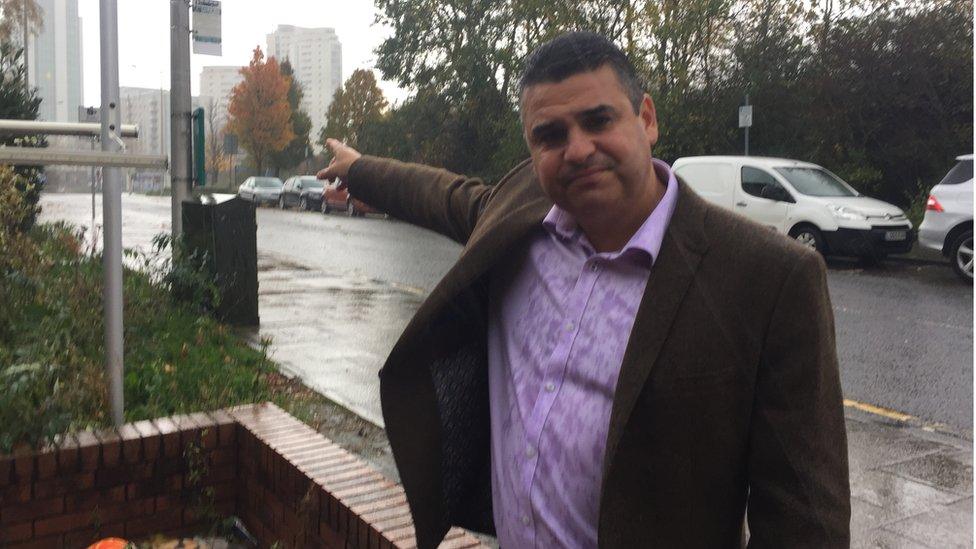
AM Neil McEvoy wants to see extra specialist resources to clear up needles
Many residents believe South Wales Police need to do more to tackle drug dealers, but the force said there were multiple patrols a day in problem areas.
Officers say that last week two brothers from London who set up a drug dealing operation in Cardiff Bay were jailed for eight years.
Insp Ian Randell said police had a "a zero-tolerance approach" to drug dealing and would support the community in any way they could.
He added: "The [Neighbourhood Watch Group] demonstrates that people are making a stand - they are leading by example and that it is a truer and more deserved reflection of the proud community that Butetown is.
"With the community's help, we will weed out those who are spreading the misery of addiction to the detriment of families and communities and put them behind bars."
- Published8 September 2011
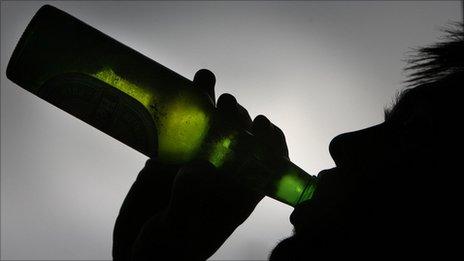
- Published26 July 2013
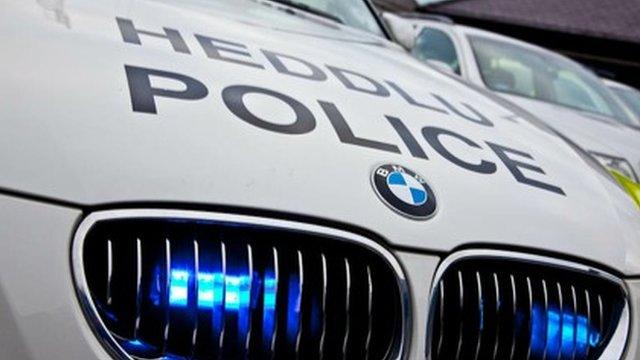
- Published7 October 2016
